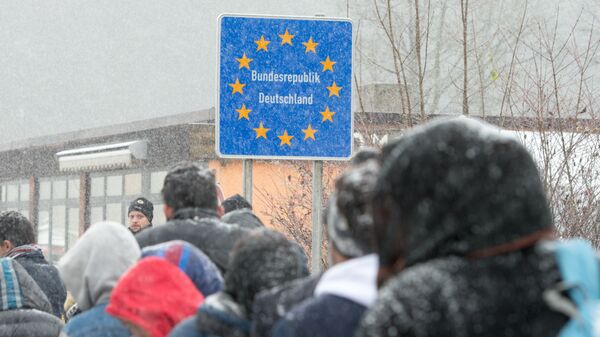Werner Patzelt, leading expert on German domestic politics and professor emeritus of political science at Technical University of Dresden, believes that the traditional permissiveness of Germany's approach factors in the asylum seekers' return to the country.
Sputnik: Why are migrants who have been deported allowed to return? What's the basis for decision-making in such cases?
Werner Patzelt: The deepest reason is the traditional permissiveness of Germany's approach towards immigration. Those who claim to need political asylum can regularly count on a benevolent procedure, in the past apparently even at a repeated try. The most obvious reason, however, is the fact that neither the European Union as a whole nor Germany as its most attractive destination for migrants has any effective border and immigration control. As a result, deported migrants have a significant incentive to make a second attempt at staying in Germany.
Sputnik: What consequences could this situation have on German society and the country's security?
Werner Patzelt: As to German society, there is increasing frustration with the government's handling of migration affairs, decreasing trust in the parties running the country, growing support for the AfD, and a spread of - even quite unfair - xenophobic feelings. As to security, returning asylum seekers are only a small part of the overall challenge of imported political tensions among migrants from a different origin, and of homegrown radicalisation of some immigrants who live in Germany but despise this country and its standards of behaviour.
Sputnik: How might this influence the domestic political situation in Germany?
Werner Patzelt: It will work only for a limited period of time to push successfully the climate issue into the foreground of German political discourse, while the follow-up problems of insufficiently handled immigration do not end affecting people, in particular from lower classes. Implausible migration regulations, and permissive administrative behaviour towards migrants, will go on nourishing anti-establishment protest. From this the CDU will suffer - and the AfD will draw further support.



